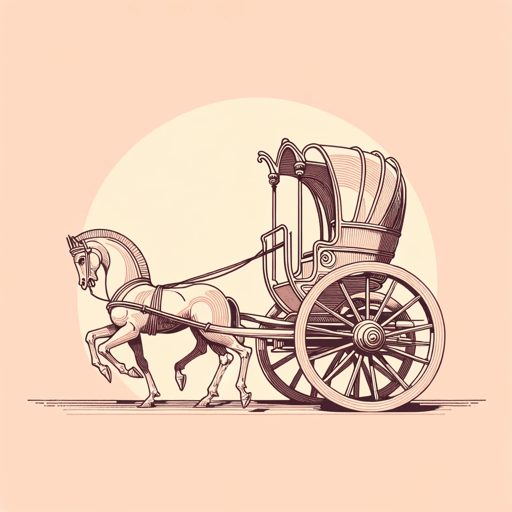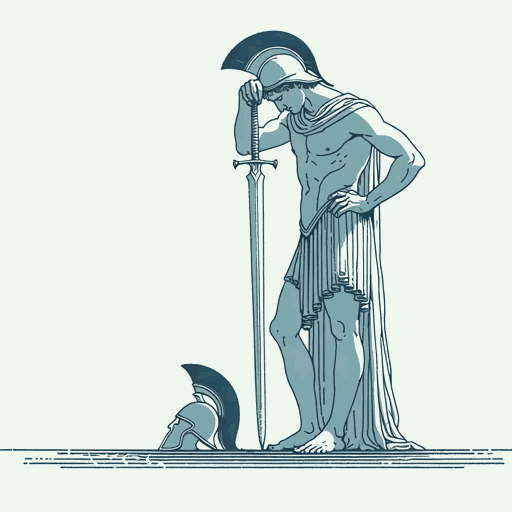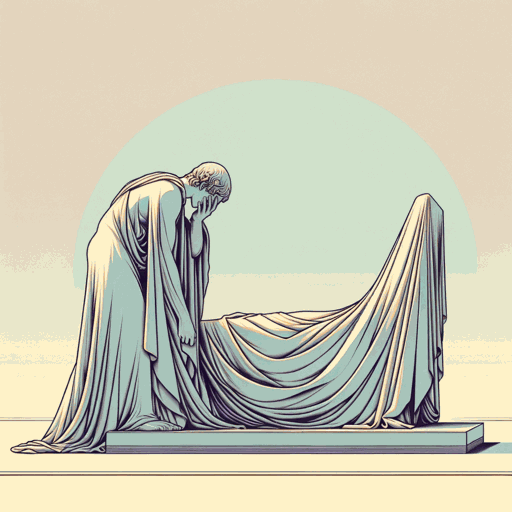32 pages • 1 hour read
SophoclesElectra
Fiction | Play | Adult | Published in 450A modern alternative to SparkNotes and CliffsNotes, SuperSummary offers high-quality Study Guides with detailed chapter summaries and analysis of major themes, characters, and more.
Summary and Study Guide
Overview
Electra is a Greek tragedy by Sophocles. While Electra’s publication date is unknown, scholars believe Sophocles produced it towards the end of his career, between 420 BC and 414 BC. Electra takes place within the larger tale of King Agamemnon’s return from the Trojan War, as told in Homer’s Iliad and the Oresteia trilogy by Aeschylus. By the time of Agamemnon’s homecoming, Queen Clytemnestra had grown angry with her husband’s long absence and his murder of their daughter Iphigenia. Clytemnestra murders Agamemnon and marries Aegisthus, who replaces Agamemnon as king of Mycenae. Agamemnon and Clytemnestra’s other children, Electra and Orestes, seek revenge on their mother in Electra. Sophocles’s work functions as an extension of the world of Greek tragedies, enriching the genre by adding further character and plot development. Electra focuses on how the power of speech influences perception and creates false narratives. Issues of ethics come to the forefront as well, as each character attempts to justify their subsequent murders of family members. The play has since been adapted into many films and operas of the same name.
This study guide is based on the Oxford University Press edition (2001), translated by Anne Carson.
Plot Summary
Electra opens with Paedagogus (a “paedagogus” being a slave or former slave educated in the Greek language) and Orestes (the prince of Mycenae, who was given to Paedagogus by the older Electra, princess of Mycenae, who feared their mother would kill him) devising a plan to avenge King Agamemnon’s death. Orestes plans to have Paedagogus relay his death in a chariot accident to his mother, Queen Clytemnestra, so that he may enter their home without being recognized. Meanwhile, Orestes’s sister Electra (princess of Mycenae) laments her father’s death and hopes for her brother’s return. Despite the Greek Chorus (a group of narrators) attempting to convince Electra to cease wasting her life away by suffering, the latter argues that she cannot stop mourning her father’s unjust death. Electra’s sister, Chrysothemis, speaks to her while on her way to pay libations to the dead. She offers Electra similar advice as the Chorus, begging her to bend to accept reality. She also rejects Electra’s offer to help avenge their father’s death.
Clytemnestra enters the scene and accosts Electra for “prowling the streets” and airing her grievances to the world (692). She offers her own defense for the murder of Agamemnon: She states that Agamemnon sacrificed his own daughter (the late Princess Iphigenia) to the gods, thus taking what was hers. Electra counters, stating that Agamemnon had no choice but to sacrifice her sister so that the Achaeans could be free. She also states that murder does not beget murder; if the law was so, Clytemnestra herself would have been subjected to the same reasoning. Clytemnestra is furious at her daughter’s disobedience, and the two continue to bicker until Paedagogus enters the scene. He relays the fabricated tale of Orestes’s death during a chariot race. While Clytemnestra is unfazed, Electra laments once more (as she is unable to recognize Paedagogus in his old age). Chrysothemis soon returns and tells her sister that she saw Orestes at the graveyard. Electra does not believe Chrysothemis and, thinking Orestes to be dead, attempts to convince her to murder their mother together. Chrysothemis declines, arguing that to commit such an act without foresight will destroy both them and their family. Orestes arrives carrying ashes and upon seeing Electra’s grief, reveals his identity to her.
Paedagogus tells the siblings that they must take action before the new king, Aegisthus, returns. Orestes, Paedagogus, and the royals’ cousin Pylades enter the house where Clytemnestra sits while Electra narrates the scene from outside. Orestes soon emerges and tells Electra that she will not be subjected to their mother’s abuse again. Aegisthus returns, believing the dead body presented to him to be Orestes’s. Orestes comments on how he has resurrected himself from the dead and that the body is not his, but Clytemnestra’s. Electra silences Aegisthus out of fear that he will spin a web of lies and confuse them. She then follows the men into the house where their own father was murdered.








Related Titles
By Sophocles
Featured Collections
Ancient Greece
View Collection
Appearance Versus Reality
View Collection
Books on Justice & Injustice
View Collection
Brothers & Sisters
View Collection
Family
View Collection
Fate
View Collection
Grief
View Collection
Mortality & Death
View Collection
Mythology
View Collection
Revenge
View Collection
Tragic Plays
View Collection
Truth & Lies
View Collection






